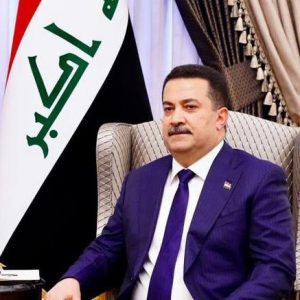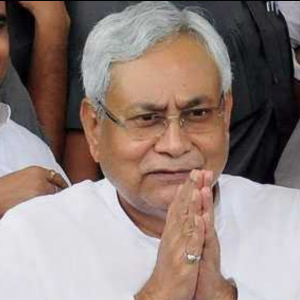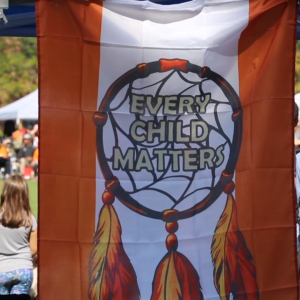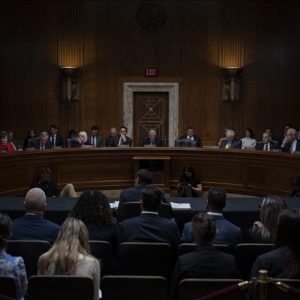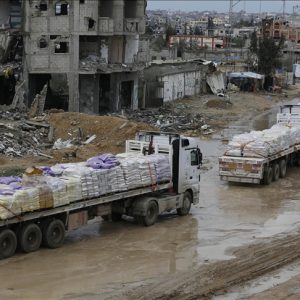Kosovo ex-president denies guilt as war crimes trial starts
The Hague, Netherlands (AFP):
Former Kosovo president Hashim Thaci was accused of leading a violent campaign against opponents during the 1998-1999 independence war with Serbia as his war crimes trial began on Monday.
Thaci and three other leaders of the Kosovo Liberation Army (KLA) rebel group all pleaded not guilty to crimes against humanity and war crimes as the trial got underway at a special tribunal in The Hague.
Protesters rallied in The Hague to support Thaci, who resigned in 2020 and has been detained by the court ever since, while thousands of demonstrators took to the streets in Pristina on the eve of the trial.
Thaci is widely seen as a guerilla hero in Kosovo. However, prosecutors allege that he oversaw violence as the ethnic Albanian group KLA tried to tighten its grip on the region during and after the war.
“Why did they do it? The evidence will show that it was to gain power,” prosecutor Alex Whiting told the EU-funded Kosovo Specialist Chambers Court.
“We intend to prove hundreds of detentions across Kosovo, usually under terrible conditions of abuse, and over 100 murders.”
The Kosovo war, the last of the 1990s conflicts that tore apart the former Yugoslavia, claimed some 13,000 lives. It ended after a NATO bombing campaign forced Serb forces to withdraw.
‘Darker side’
Thaci, wearing a blue tie and charcoal grey suit and listening through headphones, confirmed the plea he entered when he first appeared before the court in 2020.
“I’m fully not guilty,” the 54-year-old Thaci told the tribunal.
His fellow defendants, former KLA spokesman Jakup Krasniqi, Thaci’s closest political ally Kadri Veseli and key KLA figure Rexhep Selimi, also denied the charges.
Dubbed the “George Washington of Kosovo” by then-US vice president Joe Biden, Thaci was the young nation’s first prime minister and president after it declared independence from Serbia in 2008.
“These four men were without any doubt the principal leaders of the KLA and they have been celebrated and honoured for it,” Whiting told the court.
“But there was a darker side to their leadership.”
The men each face six counts of crimes against humanity and four counts of war crimes, including murder, torture, forced disappearances, persecution and cruel treatment.


